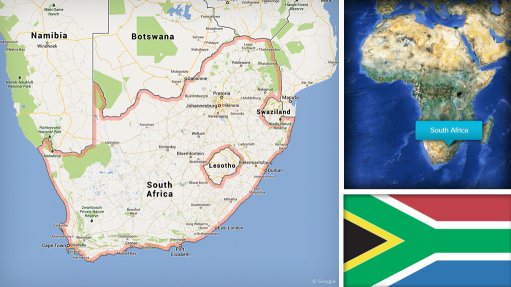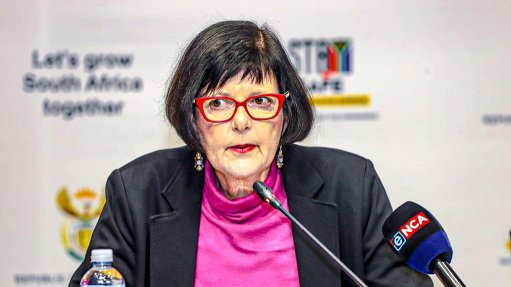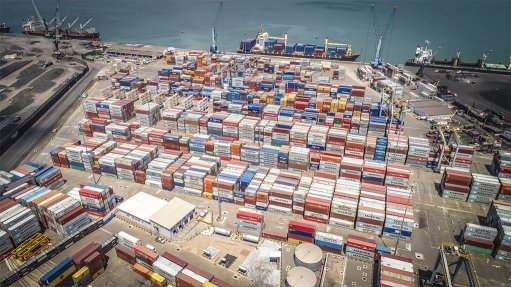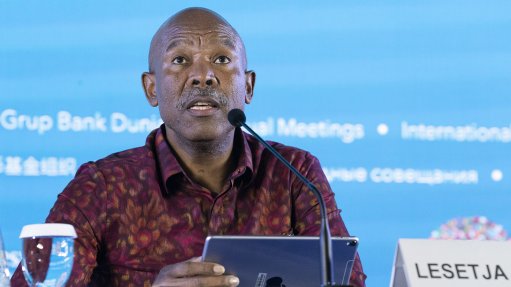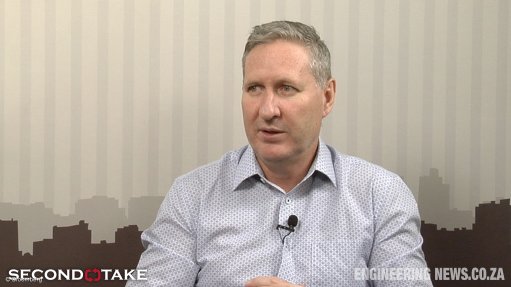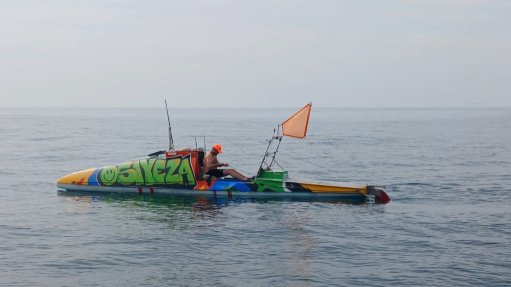Land Bank posts healthy results during difficult times in agriculture sector
State-owned development finance institution (DFI), the Land and Agricultural Development Bank of South Africa (Land Bank), grew its transformational loans to R7.9-billion in the 2018/19 financial year.
Transformational loans as a percentage of the total loan book increased from 12% in 2017/18 to 17% in 2018/19.
The DFI also maintained a strong balance sheet, despite challenging conditions in the agricultural sector, Land Bank acting CEO Konehali Gugushe said on Monday.
The bank provided interest rate subsidies, from the bank’s own resources, for development farmers to the value of R58.7-million and posted a net profit of R130.6-million, acting CFO Yatheen Ramrup said at the presentation of the financial results for the year ended March 31.
In partnership with the Industrial Development Corporation, it also disbursed R356.6-million to support farmers who had been negatively impacted on by drought since the inception of the Drought Relief Facility in 2017.
While total gross loans declined to R45.2-billion from R45.6-billion in 2017/18, the non-performing loans ratio grew to 8.8% from 6.7% and its net interest margin fell from 3% to 2.7%, the Land Bank does maintain a cost-to-income ratio of 57.1%, a capital adequacy ratio of 16.4% and net stable funding ratio of 102%.
“Resilience is the theme of these financial results. We have a strong balance sheet and achieved solid financial performance despite challenges and a persistent drought in the western parts of the country,” Ramrup said.
A delay in rains and planting led to the Land Bank having more liquidity coverage than was needed and this led to a negative carry (higher costs of borrowing than returns earned), although the bank had good liquidity for the current financial year.
The DFI reduced its reliance on short-term funding to 50%, and was focusing strongly on controlling expenditure to maintain its financial sustainability.
However, Ramrup added that while it would focus on its nonperforming loans, the Land Bank was not a commercial bank and provided long-term support to farmers in efforts to rehabilitate the farms and ensure sustainable food production, with liquidation only instituted as a last resort.
This meant that nonperforming loans had much greater “stickiness” than those of commercial banks, and was a key part of its development mandate to ensure the agricultural sector is developed and food security maintained.
Additionally, some areas in the western parts of the country had experienced four seasons of poor rainfall over the past five years and this had exacerbated the impact of the recession suffered in the sector in 2018, said Ramrup.
The focus during the current financial year would be on growing profits and driving top-line growth to complement the focus on nonperforming loans and expenditure control, as indicated by the stability of the cost-to-income ratio, said Gugushe.
It planned to disburse R3-billion in development finance during the current financial year, with a strong focus on supporting agricultural entrepreneurs, while adhering to the principles of responsible banking to ensure the bank would continue to play a role in the development of the South African agricultural sector, she said.
The Land Bank provided significant support to farmers and agricultural entrepreneurs, but it often took time for start-ups to get all the necessary agreements in place and to develop a sufficiently robust business plan, said Land Bank strategy and communication executive manager Sydney Soundy.
However, the bank was implementing a digitisation strategy to improve the speed at which it could respond to queries and requests for finance, as well as enabling farmers to use digital media or its physical branches to engage with it.
The digitalisation would also entail automation of certain internal functions to improve its turnaround times, which it acknowledged were poor and needed to be improved, said Ramrup.
“While digitalisation will not solve the problem of insufficient equity or improve the rates at which we can offer loans, we do believe that implementing a layer to integrate with other organisations and farmers will drive efficiencies and support the agricultural financial services ecosystem, such as the ability for farmers and us to use third-party applications.”
Meanwhile, Land Bank nonexecutive chairperson Arthur Moloto added that the Land Bank and 29 finance institutions had helped to develop a comprehensive sustainability framework and principles to guide banks as part of the United Nations Environment Programme – Finance Initiative (UNEP FI).
The Land Bank would be one of the first signatories of this sustainable finance framework on September 22, he said.
Comments
Press Office
Announcements
What's On
Subscribe to improve your user experience...
Option 1 (equivalent of R125 a month):
Receive a weekly copy of Creamer Media's Engineering News & Mining Weekly magazine
(print copy for those in South Africa and e-magazine for those outside of South Africa)
Receive daily email newsletters
Access to full search results
Access archive of magazine back copies
Access to Projects in Progress
Access to ONE Research Report of your choice in PDF format
Option 2 (equivalent of R375 a month):
All benefits from Option 1
PLUS
Access to Creamer Media's Research Channel Africa for ALL Research Reports, in PDF format, on various industrial and mining sectors
including Electricity; Water; Energy Transition; Hydrogen; Roads, Rail and Ports; Coal; Gold; Platinum; Battery Metals; etc.
Already a subscriber?
Forgotten your password?
Receive weekly copy of Creamer Media's Engineering News & Mining Weekly magazine (print copy for those in South Africa and e-magazine for those outside of South Africa)
➕
Recieve daily email newsletters
➕
Access to full search results
➕
Access archive of magazine back copies
➕
Access to Projects in Progress
➕
Access to ONE Research Report of your choice in PDF format
RESEARCH CHANNEL AFRICA
R4500 (equivalent of R375 a month)
SUBSCRIBEAll benefits from Option 1
➕
Access to Creamer Media's Research Channel Africa for ALL Research Reports on various industrial and mining sectors, in PDF format, including on:
Electricity
➕
Water
➕
Energy Transition
➕
Hydrogen
➕
Roads, Rail and Ports
➕
Coal
➕
Gold
➕
Platinum
➕
Battery Metals
➕
etc.
Receive all benefits from Option 1 or Option 2 delivered to numerous people at your company
➕
Multiple User names and Passwords for simultaneous log-ins
➕
Intranet integration access to all in your organisation







